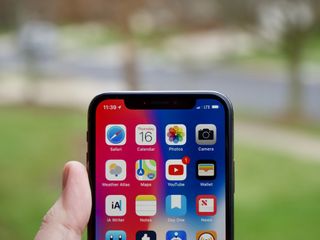Google Chrome tests Touch ID and Face ID protection for Incognito browsing

What you need to know
- Google is testing securing Incognito Chrome tabs on iOS with Face ID and Touch ID.
Google is testing a feature that will let users lock their Incognito Chrome tabs using Touch ID or Face ID.
As reported by 9to5Google:
While Chrome for iOS hasn't seen a stable release since November amid an ongoing pause in updates, Google continues work on the beta channel and is currently testing a way to lock Incognito tabs with Face or Touch ID. Chrome will let you "Lock Incognito tabs" so that they will be blurred in the tab switcher "until you confirm it's you" using Touch or Face ID. Google calls it a way to "add more security" as you multitask across apps.
The feature means that anyone else looking at your iPhone or iPad wouldn't be able to see the title or URL in a tab if they were using the device, searching, or switching between tabs.
According to the report, this feature is currently not available to all beta users, but is listed in the release notes and is likely a server-side update.
As the report notes, Google has ceased to update its iOS apps, notably following a new iOS 14 feature that requires apps to disclose what data they collect from users. From that report:
A new report speculates that Google may have stopped updating its iOS apps to avoid disclosing how much data it uses through Apple's new iOS privacy labels.From Fast Company:Not a single one of Google's iOS apps have been updated in almost a month—an unusually long period for a tech behemoth not to release, at the very least, even a minor bug fix or stability update for one of its dozens of insanely popular iPhone and iPad apps. And after reviewing the latest release dates for all of Google's iOS apps, one reason for this lack of updates seems more likely than others: It could be related to Apple's new App Store privacy labels.The last time any Google iOS app was updated was on December 7. This includes updates to major Google apps like Google Drive, YouTube, Google Docs, Google Sheets, YouTube Music, Google Duo, Google Authenticator, and Gboard.*
Google said it planned to update its apps with the labels as soon as early January, but this promise never materialized. This week Google apps on iOS users started warning them their apps were out of date.
Master your iPhone in minutes
iMore offers spot-on advice and guidance from our team of experts, with decades of Apple device experience to lean on. Learn more with iMore!

Stephen Warwick has written about Apple for five years at iMore and previously elsewhere. He covers all of iMore's latest breaking news regarding all of Apple's products and services, both hardware and software. Stephen has interviewed industry experts in a range of fields including finance, litigation, security, and more. He also specializes in curating and reviewing audio hardware and has experience beyond journalism in sound engineering, production, and design.
Before becoming a writer Stephen studied Ancient History at University and also worked at Apple for more than two years. Stephen is also a host on the iMore show, a weekly podcast recorded live that discusses the latest in breaking Apple news, as well as featuring fun trivia about all things Apple. Follow him on Twitter @stephenwarwick9
Most Popular





